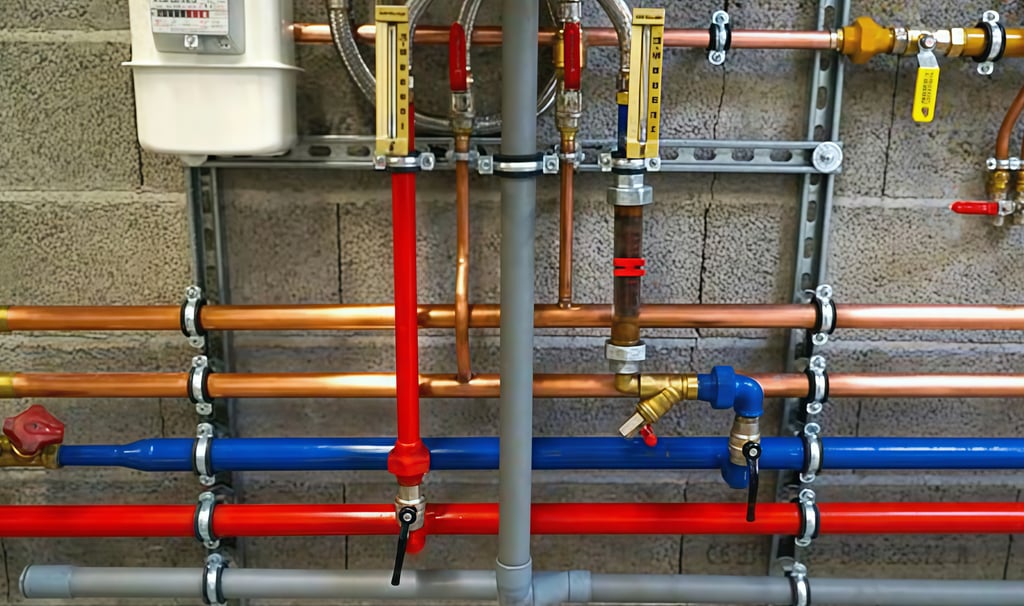How Pipelines Revolutionize Cost Efficiency in Healthcare Facilities
9/26/20252 min read


Introduction
In today's increasingly competitive healthcare landscape, operational efficiency is crucial for facilities to maintain high standards of patient care while controlling costs. One of the most effective ways to enhance this efficiency is through the implementation of pipelines for gas and medical supply delivery. Pipelines not only streamline operations but also offer significant cost-saving benefits that can transform hospital management.
Cost-Saving Benefits of Pipelines
Whether it's for medical gases or other essential utilities, switching from traditional cylinder systems to pipeline infrastructures provides several advantages in cost management:
Lower Manpower Costs
Utilizing a centralized pipeline system can greatly reduce the need for manual handling of gas cylinders. This transition minimizes labor costs related to transportation, storage, and inventory management. Fewer personnel are required to operate a pipeline, allowing healthcare workers to focus on critical patient care rather than logistical operations.
Reduced Wastage
Pipelines are designed for continuous supply, ensuring that there is minimal wastage of critical resources. Transporting gases through various cylinders often leads to leaks and spillage, contributing to unnecessary losses. By employing pipelines, hospitals can significantly lower waste costs associated with gas usage, translating directly into operational savings.
Space Optimization
Medical gas storage often consumes substantial space, especially with multiple cylinders in rotation. By integrating a pipeline system, hospitals can reclaim this space for more productive uses, such as patient care or additional equipment. Leveraging this newfound space ultimately leads to improved operational workflows and better utilization of facility resources.
Fewer Interruptions
Reliability is critical in healthcare environments. Pipeline systems offer a steady and uninterrupted supply of gases, which is essential for surgical procedures and emergency care. Reducing the frequency of equipment changes and stock outs leads to fewer disruptions, allowing hospitals to maintain high operational efficacy and patient safety.
Long-Term ROI
Investing in a pipeline system may have upfront costs; however, the long-term return on investment is significant. Lower maintenance costs, reduced manpower, and decreased wastage contribute to financial savings that accumulate over time, leading to a remarkable ROI. Hospitals focusing on sustainable practices will find that pipelines offer a resilient solution to ongoing economic pressures.
Final Word
As healthcare facilities continue to search for ways to optimize their operations and reduce costs, the shift from cylinders to pipelines stands out as a logical decision. By embracing this technology, hospitals not only enhance safety and reliability but also achieve substantial operational savings.
At Medevice, we specialize in designing and installing ISO 7396-1:2016-compliant Medical Gas Pipeline Systems (MGPS) that help hospitals deliver world-class care while efficiently managing costs.
Services
© 2024. All rights reserved.
Products


We're Making it easier to find Better Medical Devices
Find us on Map:
Contact Information
Phone: +91 9029457428 | +91 9833236604 | +91 7506374381
Email : medevices2018@gmail.com | sales@medevices.in
